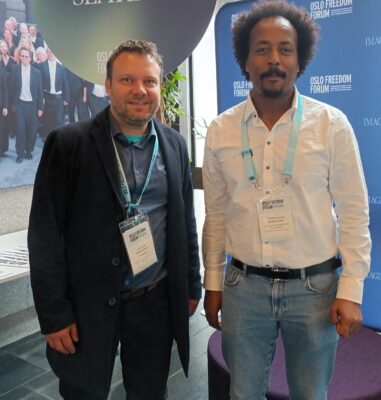LONDON (Guardian) — A coarse joke about political rivalry between Russia’s president, Dmitry Medvedev, and its prime minister, Vladimir Putin, told to American diplomats may land Azerbaijan’s leader, Ilham Aliyev, in trouble next time he meets one or both leaders.
Aliyev used coarse street slang to describe the relationship between Medvedev and Putin, but he might well have used the same idiom to describe his concerns about Turkish-Armenian reconciliation and the Nagorno-Karabagh peace process. He told Under-Secretary of State for Political Affairs Bill Burns that the “Sword of Damocles” of the April 24 Armenian Remembrance Day is hanging over the Nagorno Karabagh Process, as well as the Turkey-Armenia normalization process. He suggested that it would be easier if the Turkey- Armenia normalization could be considered after April in order to allow more time for progress on Nagorno Karabagh.
He also took the opportunity to press the US government to apply maximum pressure on Yerevan to make concessions on Nagorno Karabagh. He stressed, “Now we are trying to be even more flexible.”
On Iran, Aliyev said he supported economic isolation and believed it could be effective if enforced by a broad coalition. He complained about Iranian security provocations. On energy cooperation, President Aliyev said that if the Turks demonstrate “constructive behavior” this year that a gas transit deal can happen. Finally, on the jailed youth activists, though he made no firm commitments regarding their release, he said, “I think [a pardon or amnesty] can be done. I had no intention to hurt anyone.”
Seeks Pressure on Yerevan to Resolve Nagorno Karabagh
Burns began his hour-long meeting with President Ilham Aliyev by stressing that he was sent with the simple message that Washington wants to build bilateral relations and create a stronger partnership. He then offered his condolences for the three Azeri soldiers killed on the Line of Contact on February 18. Aliyev responded that such events show that there is no peace, no peace treaty and no peacekeepers enforcing the cease-fire. He worried more such incidents could happen. Burns commented that such incidents underscored the urgency of finding a political solution on Nagorno-Karabagh.








